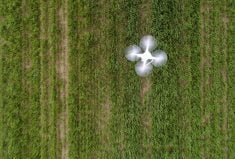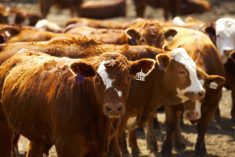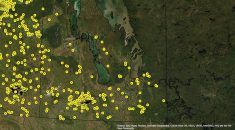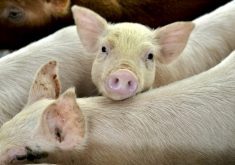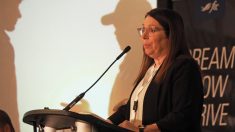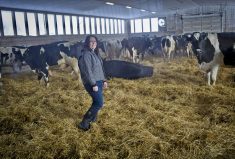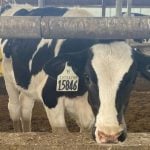Farm groups are sounding a death knell for the Manitoba hog industry following the passage of a bill aimed at protecting the health of Lake Winnipeg.
Bill 46 (the Save Lake Winnipeg Winnipeg Act) will force producers out of business and drive hog production out of the province into neighbouring jurisdictions where environmental restrictions are less severe, industry officials warn.
“You will not save Lake Winnipeg with this bill but you will eventually kill a billion-dollar industry which currently employs approximately 11,000 people in Manitoba,” Karl Kynoch, Manitoba Pork Council chairman, told a legislative committee two days before the act became law.
Read Also
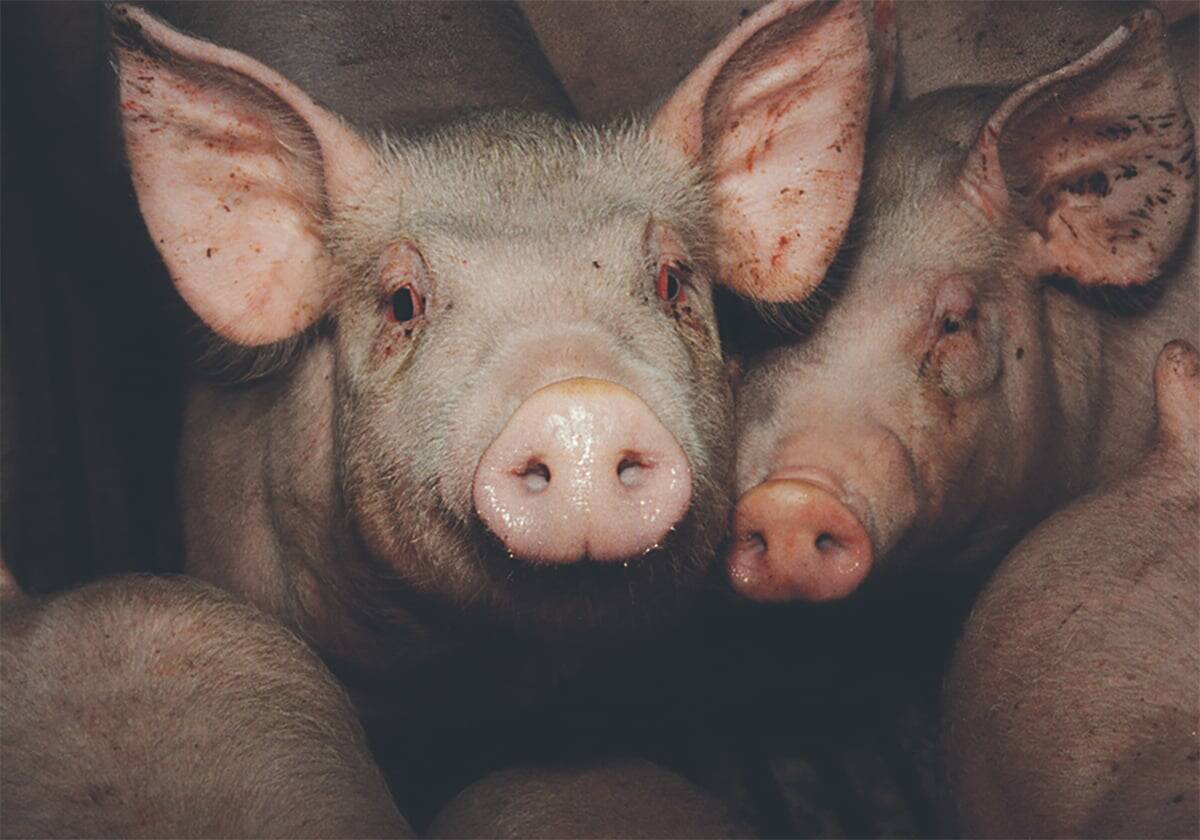
Scientists discover cause of pig ear necrosis
A University of Saskatchewan team, through years of research, has discovered new information about pig ear necrosis and what hog farmers can do to control it.
The government rejected the warning.
“I don’t accept that,” MAFRI Minister Stan Struthers said shortly after the legislature unanimously adopted the bill June 16.
“We face environmental challenges all the time. I think we can take those challenges on and we can be successful at it.”
Bill 46 contains three actions for keeping phosphorus out of Lake Winnipeg: a crackdown on hog manure, upgrades for Winnipeg’s sewage treatment system and protection for Manitoba wetlands.
THREE ACTIONS
The bill quickly followed a government-commissioned scientific report urging a 50 per cent reduction in phosphorus entering the lake and degrading water quality.
The hog manure initiative bans new expansions that do not use “advanced environmental practices to protect water,” according to a government news release.
It also enshrines in law a permanent ban on winter spreading of manure, which was scheduled to take effect Nov. 2013 anyway.
Kynoch said Bill 46 will force operators to install new technology at costs they cannot afford.
He said the industry has already lost hundreds of producers in the last five years because of economic hardship and an increasing regulatory burden. For some, this will be the last straw, said Kynoch.
“A lot of the small to middle- size farms will shut down because they can’t restructure the operations to justify the cost of what the government has asked them to do.”
ACCESS TO HOGS
If that happens, the Maple Leaf slaughter plant in Brandon may not be able to access enough hogs from Manitoba to keep running at a full double shift, Kynoch said.
And if that occurs, Maple Leaf may have to look either west or south for the pigs needed to fill its shackles, he predicted.
“If we can’t grow the hogs here to run the plants, they only have two choices. That’s either Saskatchewan or the United States.”
Doug Chorney, Keystone Agricultural Producers president, said pushing the hog industry out of Manitoba is counterproductive because it would generate more phosphorus in areas where Bill 46 has no jurisdiction.
“We already are managing phosphorus very well in Manitoba. If we have production moved or expanded out of the province, we lose the ability to control it completely. They may be spreading in the wintertime or doing all kinds of things that farmers here don’t do,” said Chorney.
“We could, in fact, put a bigger environmental load on our watershed by having that production just across the line.”
Manitoba’s cattle producers echoed the same concern.
“Targeting Manitoba’s livestock production will simply drive this economic activity out of the province but almost certainly still within our watershed,” Cam Dahl, Manitoba Beef Producers general manager, told the legislative committee.
Kynoch said producers worry Bill 46 could open the door to even tougher phosphorus application rules forcing producers to haul liquid manure long distances to fields suitable for spreading.
The bill has also thrown Manitoba Pork Council’s long-term planning into turmoil, he added. The council isn’t sure now whether to issue a phosphorus strategy it has been working on. A long-term sustainability plan to promote green farming practices, released earlier this year, may also be moot.
Kynoch called it ironic that the province is demanding farmers should decide the fate of the Canadian Wheat Board while at the same time limiting hog producers’ ability to determine their own future.
“In the hog industry, they’ve taken all the say away from the producers, they won’t listen to anything we say and they feel that hog producers need to be dictated to.
“That’s really confusing. Does the government believe farmers should have some say or do they not? Which one is it?” [email protected]
———
“Alotofthesmalltomiddle-sizefarmswillshutdown.”
– KARL KYNOCH,MPC


